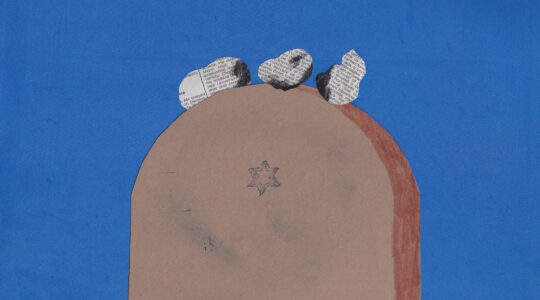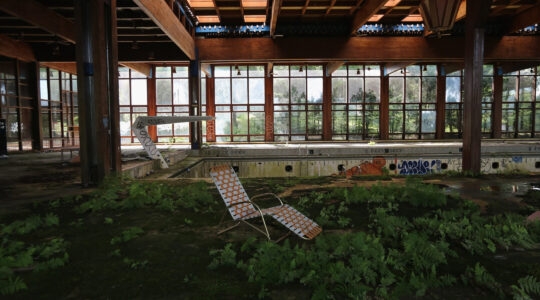How many of us realize that the organization founded in 1897 by Theodor Herzl to establish a modern Jewish state still exists? It’s called the World Zionist Organization, and it’s guided by resolutions of the World Zionist Congress, which convenes at four-year intervals.
Admittedly, the World Zionist Organization does not have the power it did prior to the birth of Israel as a sovereign state, when decisions of the organized Zionist movement were critical. But voting in its elections is still the only genuinely democratic way that Diaspora communities can influence Israeli society.
In the United States, there is a World Zionist Organization election going on at this very moment, with balloting online from Jan. 14 through April 30, to elect 145 delegates of the 500 worldwide total. There are eleven competing slates for the approximately 100,000 American Jews who will exercise their right to vote.
To be honest, I am not impartial: I’ve attended three past Congresses and am a candidate again this year, on the Hatikvah Progressive Zionist Slate, a list combining activists and supporters of four left-of-center American Zionist organizations — Ameinu, Partners for Progressive Israel (PPI), Habonim-Dror and Hashomer Hatzair. They are allied to varying degrees with today’s Labor and Meretz parties.
I will make my case for Hatikvah, but I do hope that readers will seriously consider voting regardless of their preference.
Speaking of democracy, however, the leadership of a competing slate, the Zionist Organization of America (ZOA), has attempted to disqualify Hatikvah, claiming that it is “anti-Zionist” because one of the organizations on its list, Partners for Progressive Israel, supports an economic boycott of West Bank settlements (even as it opposes the more generalized anti-Israel boycott of the BDS movement). This would disenfranchise many if not most liberal American Jews who have considered themselves Zionist or pro-Zionist. The Zionist movement’s supreme court will render its decision some time after Israel’s March 17 national election.
If Hatikvah were disqualified, it would eliminate a list featuring a number of well-known public figures, headed by Theodore Bikel, the internationally celebrated singer and actor who is Partner for Progressive Israel’s board chair. Others include Randi Weingarten (head of the American Federation of Teachers), political theorist Michael Walzer, Debra DeLee (president of Americans for Peace Now), Daniel Sokatch (CEO of the New Israel Fund) and Sam Norich (publisher of The Forward newspaper).
Hatikvah’s platform emphasizes a wide gamut of peace and social justice issues, making it the most comprehensively liberal of all the competing slates. These include supporting “a negotiated two state solution” to be facilitated by a freeze on new settlement activity, “the protection of democratic rights for all of Israel’s citizens,” and the creation of “a robust social safety net.”
We now know that Israeli governments have been using a department of the WZO, the Settlement Division, to surreptitiously funnel governmental money into the building of West Bank settlements. Hatikvah candidates were instrumental last month in passing resolutions at the Zionist General Council (the legislative body that meets in between the quadrennial sessions of the World Zionist Congress) to reassert WZO control over the Settlement Division and for transparency in its operations.
To see the election platforms and candidate lists of all eleven slates, and to click forward to register and vote, go to this website. You have until the end of April, but you should do this soon, before you forget.
Ralph Seliger is a long-time editor and writer, mostly on Israeli and Jewish political and cultural issues, from a left-Zionist perspective. He is currently administrator of the Partners for Progressive Israel Blog.
The New York Jewish Week brings you the stories behind the headlines, keeping you connected to Jewish life in New York. Help sustain the reporting you trust by donating today.




